03:22
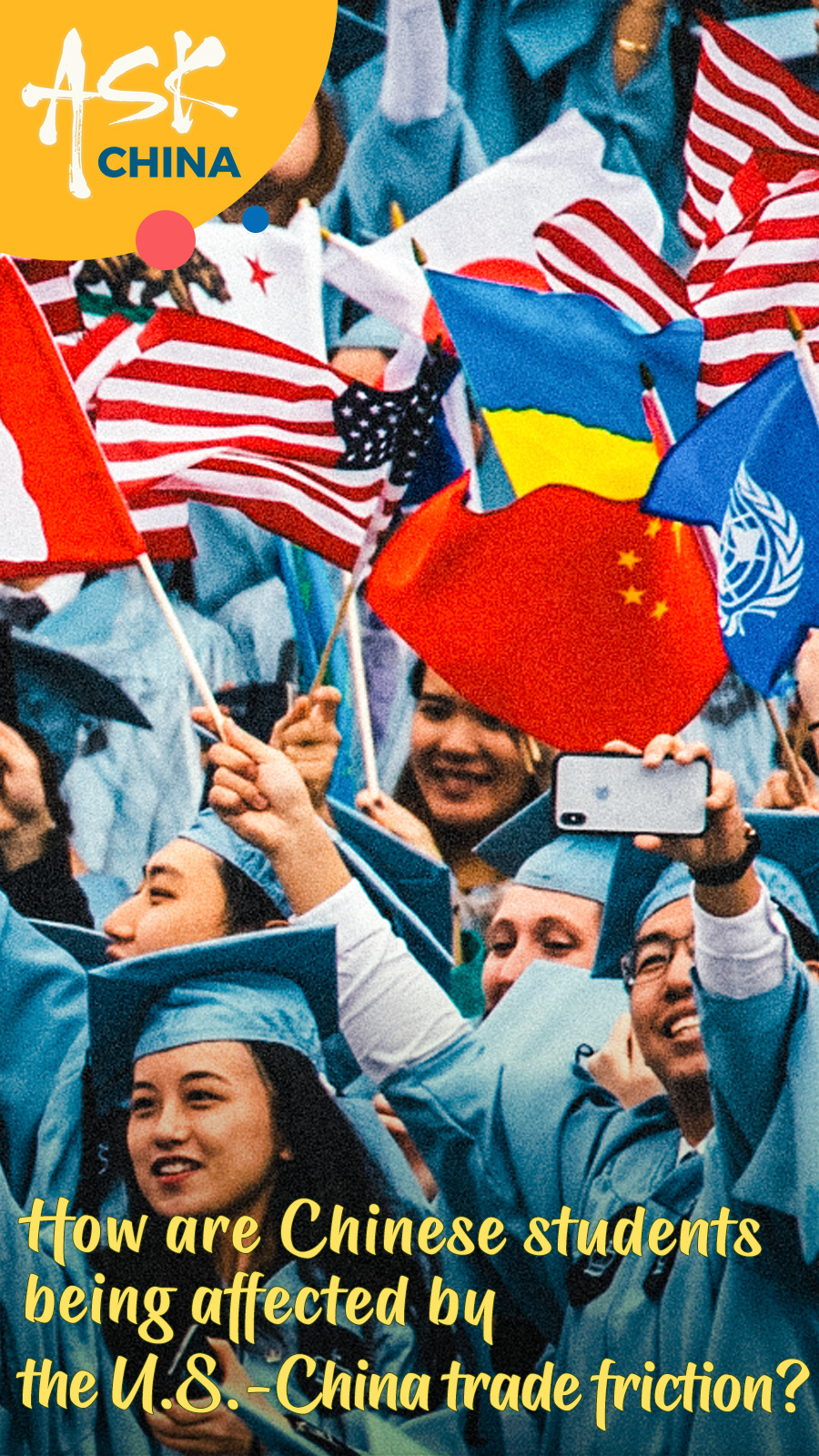
"We're going to be very good to Chinese students," said U.S. President Donald Trump during a question-and-answer session with China Media Group (CMG) in the White House on October 11, not long after the U.S. imposed visa limits on Chinese students.
"We're not going to make it tough. We're going to make it like for everybody else… China is not going to be treated any differently," Trump added, denying speculation that the U.S. would implement further restrictions on Chinese student visas.
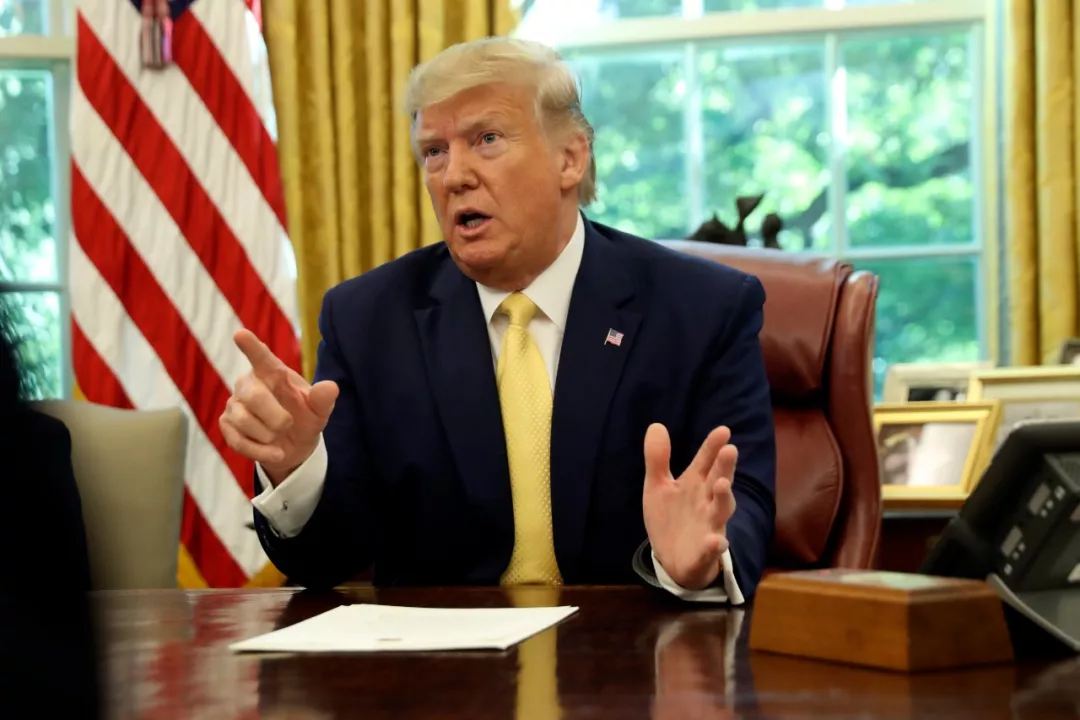
U.S. President Donald Trump meets with Chinese Vice Premier Liu He in the Oval Office of the White House in Washington, U.S., Oct. 11, 2019. /VCG Photo
U.S. President Donald Trump meets with Chinese Vice Premier Liu He in the Oval Office of the White House in Washington, U.S., Oct. 11, 2019. /VCG Photo
Last June, the Trump administration decided to enact limits on visas for Chinese graduates studying in fields like robotics, aviation and high-tech manufacturing, battling what was considered to be "intellectual property theft" by Beijing.
These students, under the new policy, were limited to one-year visas, instead of being given visas with the maximum possible length which was regarded as usual practice.
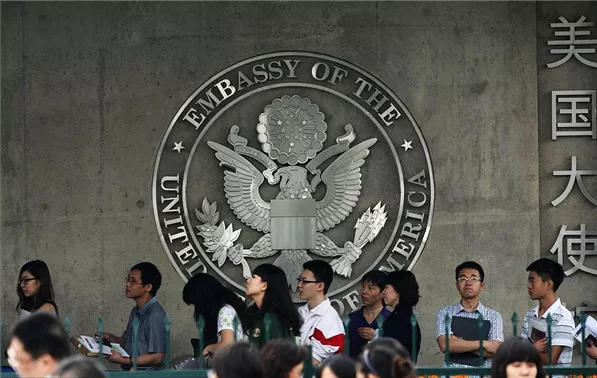
People wait in line for a visa interview in front of the U.S. Embassy in Beijing. /VCG Photo
People wait in line for a visa interview in front of the U.S. Embassy in Beijing. /VCG Photo
The shift in policy was foreshadowed in Trump's national security strategy issued in December, 2017, where it specifically mentioned possible restrictions on visas for foreign students studying in Science, Technology, Engineering and Mathematics, namely the STEM fields.
Following an evident rise in visa refusals reported by Chinese students, China's Ministry of Education issued a warning this June, reminding students and scholars to strengthen their risk assessments before deciding to study in the U.S.
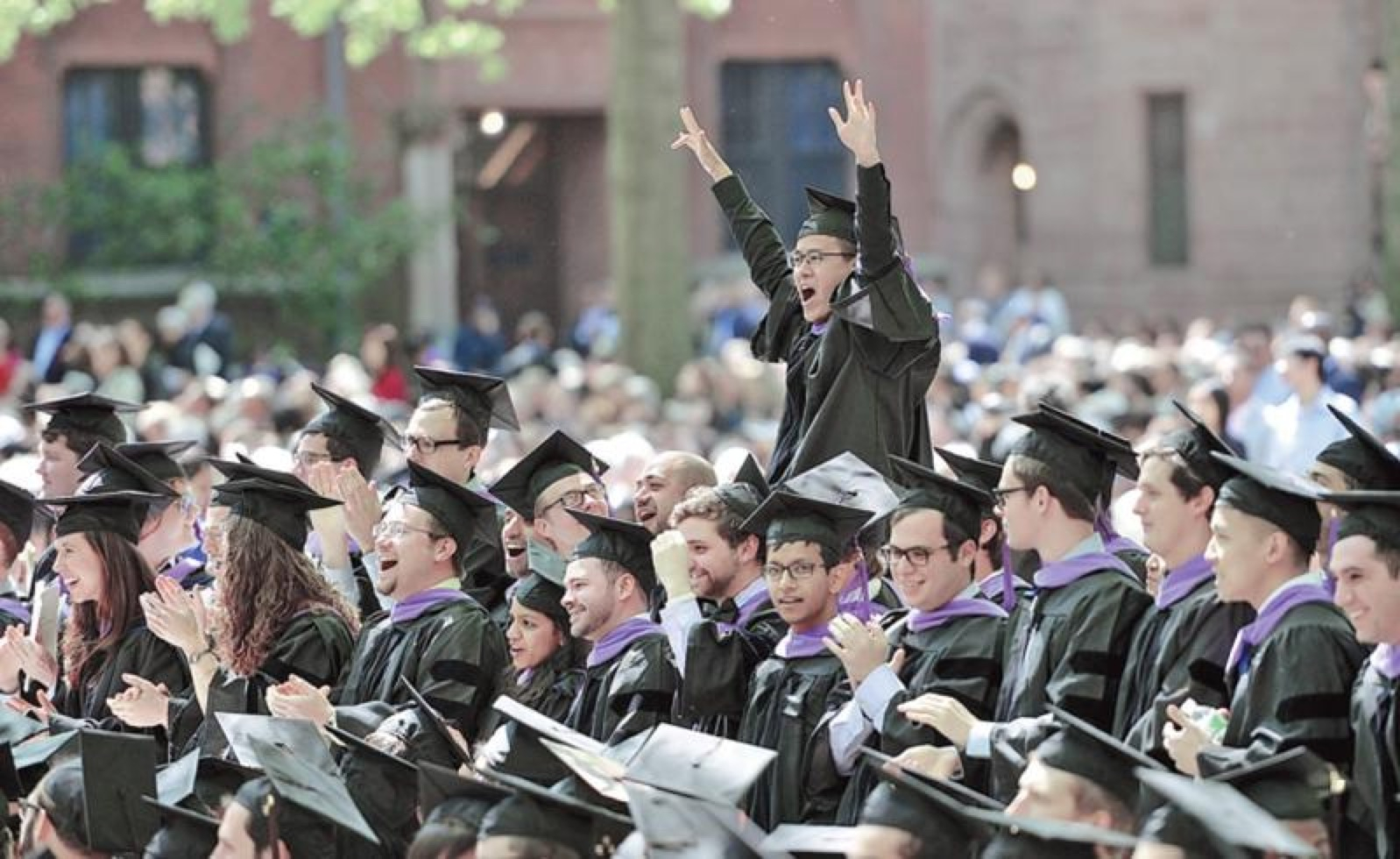
Graduation ceremony at Yale University in 2014. /Xinhua Photo
Graduation ceremony at Yale University in 2014. /Xinhua Photo
While the U.S. government considered the Chinese students a "threat" to its national security, the Chinese students appeared to be anything but.
According to a new research by Harvard professor William R. Kerr, more than 10 percent of U.S. inventions today are made by scientists of ethnic Chinese origin. While most of the artificial intelligence scientists in the U.S. are immigrants that came from China, according to a report from the think tank MacroPolo.
Apart from acting as a marvellous stimulus for American innovation, the steady flow of China's brightest brains has also made terrific contributions to the U.S. economy.
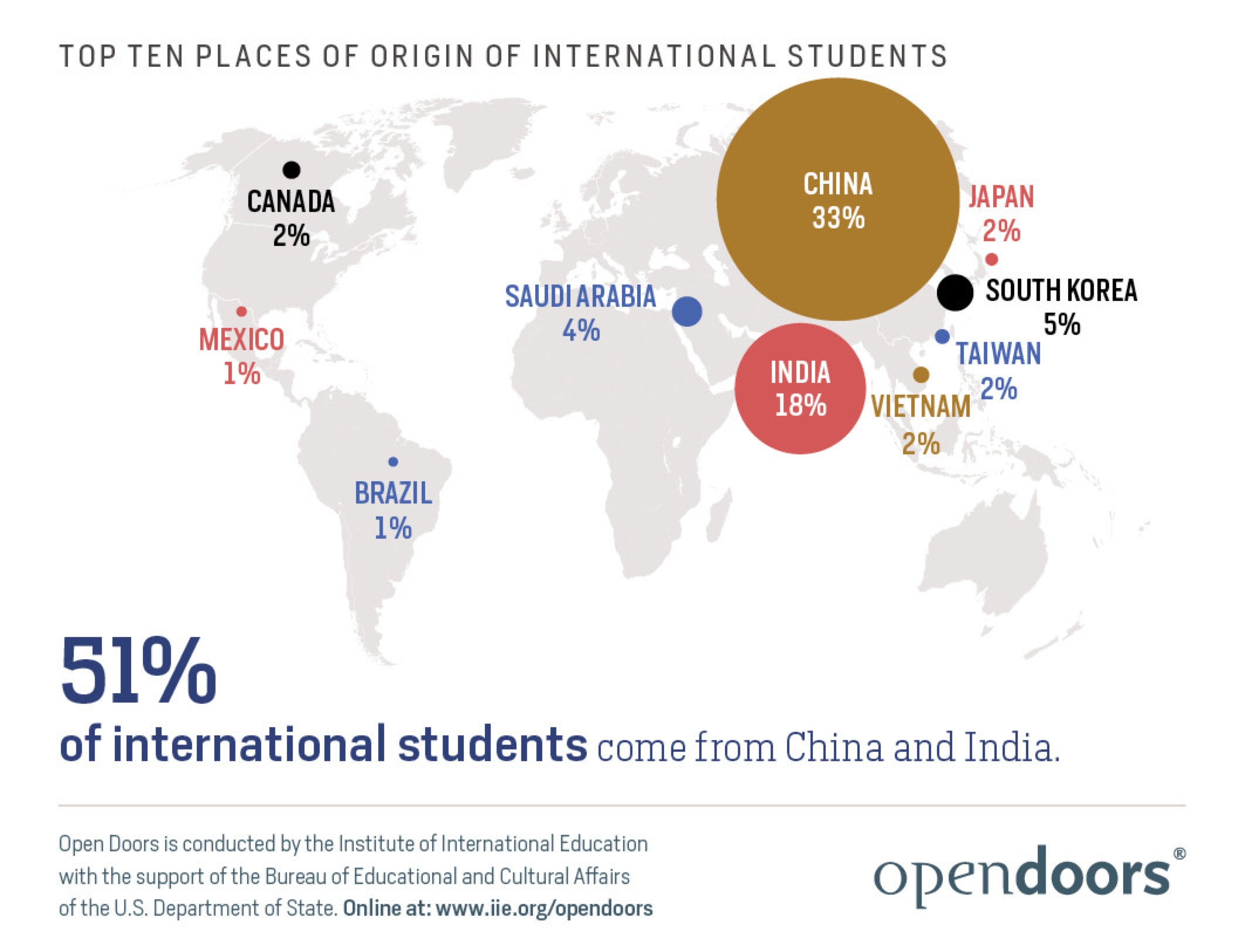
Open Doors 2018 is a comprehensive report on international education trends released by the Institute of International Education. /CGTN Screenshot
Open Doors 2018 is a comprehensive report on international education trends released by the Institute of International Education. /CGTN Screenshot
China has been America's biggest source of international students for nine consecutive years, according to Open Doors 2018, the comprehensive report on international education trends released by the Institute of International Education.
The report shows that during the 2017-2018 academic year, a total of 363,300 registered Chinese students studied in U.S. universities, accounting for 33.2 percent of all the international students. They brought in more than 15 billion U.S. dollars to the country in 2018 alone.
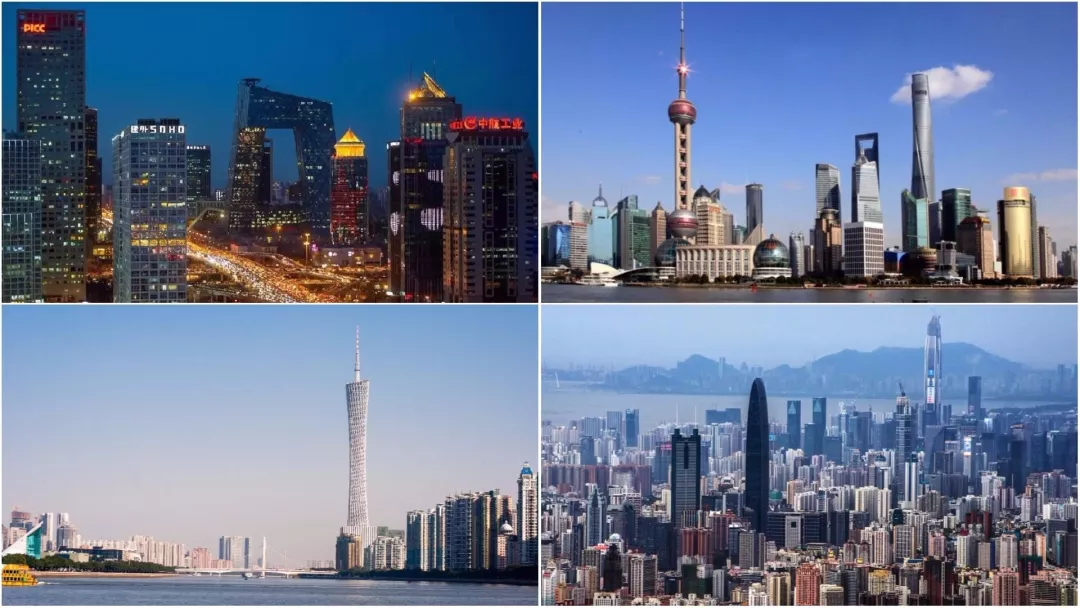
Beijing, Shanghai, Guangzhou and Shenzhen remain attractive to overseas returnees. /CGTN Photo
Beijing, Shanghai, Guangzhou and Shenzhen remain attractive to overseas returnees. /CGTN Photo
Education exchanges between two countries have been viewd largely as a clear "win-win" for both sides.
According to latest statistics revealed by China's Ministry of Education, over 5.85 million Chinese students studied overseas between 1978 to 2018. And out of the 4.32 million who have already completed their studies, nearly 85 percent chose to pursue their careers in China, with many of them taking on leadership roles after returning home.
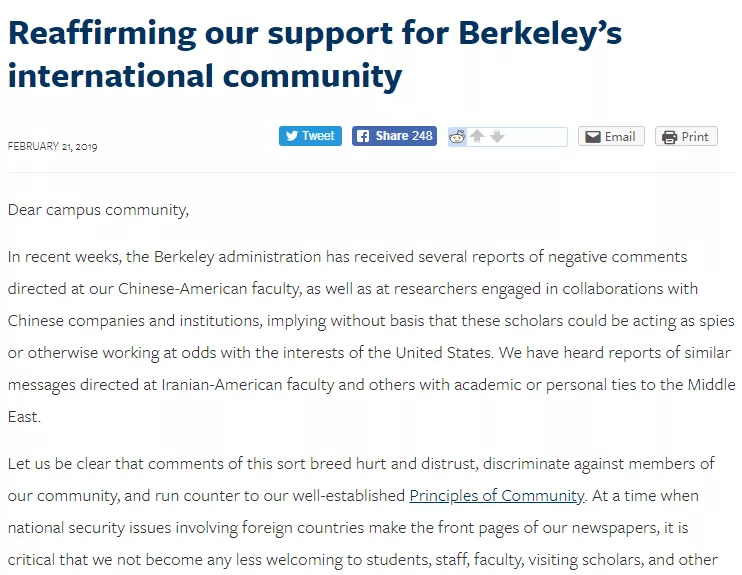
University of California, Berkeley's statement in support of international students. /CGTN Screenshot
University of California, Berkeley's statement in support of international students. /CGTN Screenshot
Realizing the undeniable benefits that come alongside free and independent international exchanges in the education sector, a group of leading U.S. universities have since expressed concern over growing scrutiny of Chinese student visa applications, reaffirming their steadfast commitment to international students and scholars including those from China.
"As California's own dark history teaches us, an automatic suspicion of people based on their national origin can lead to terrible injustices," said University of California, Berkeley in a statement in February, 2019, one of the first universities that has spoken out on the issue.
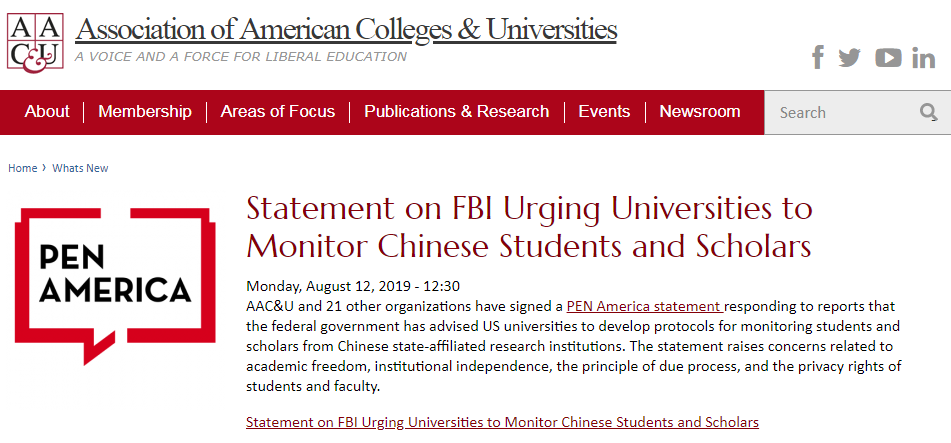
A joint statement against racial profiling issued by over 20 U.S. organizations, including the Association of American Colleges & Universities (AAC&U) and the American Association of University Professors (AAUP). /CGTN Screenshot
A joint statement against racial profiling issued by over 20 U.S. organizations, including the Association of American Colleges & Universities (AAC&U) and the American Association of University Professors (AAUP). /CGTN Screenshot
In August, the Association of American Colleges & Universities (AAC&U), along with 21 other U.S. organizations signed a joint statement against racial profiling, in which they said "Federal agencies need to clarify and specify their concerns, and ensure that their efforts do not trample on individual rights nor on the principle of free and open academic inquiry and exchange."
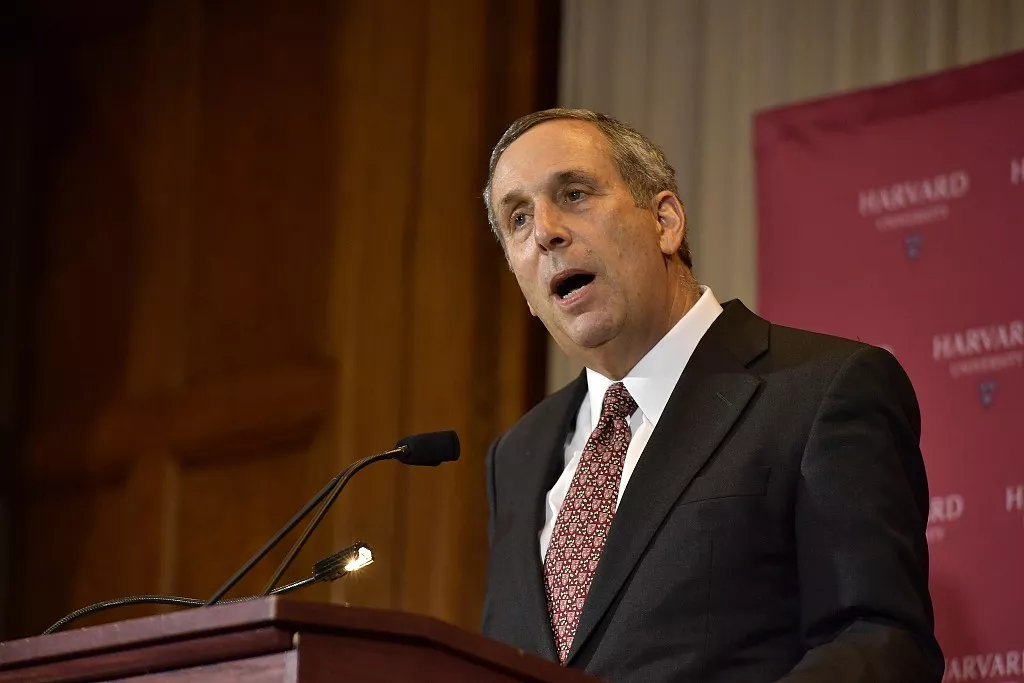
Lawrence Bacow speaks as he is introduced as Harvard University's 29th president during a news conference in Massachusetts, U.S., February 11, 2018. /VCG Photo
Lawrence Bacow speaks as he is introduced as Harvard University's 29th president during a news conference in Massachusetts, U.S., February 11, 2018. /VCG Photo
"Perhaps no group is more vulnerable and exposed to the current environment of uncertainty than Dreamers," wrote Lawrence Bacow, head of Harvard Univeristy, in a letter to U.S. Secretary of State Mike Pompeo calling for an acceleration of visa application process for international students.
The Harvard President apparently echoed with what Lu Kang, the Chinese Foreign Ministry spokesman had to say during a press briefing this May.
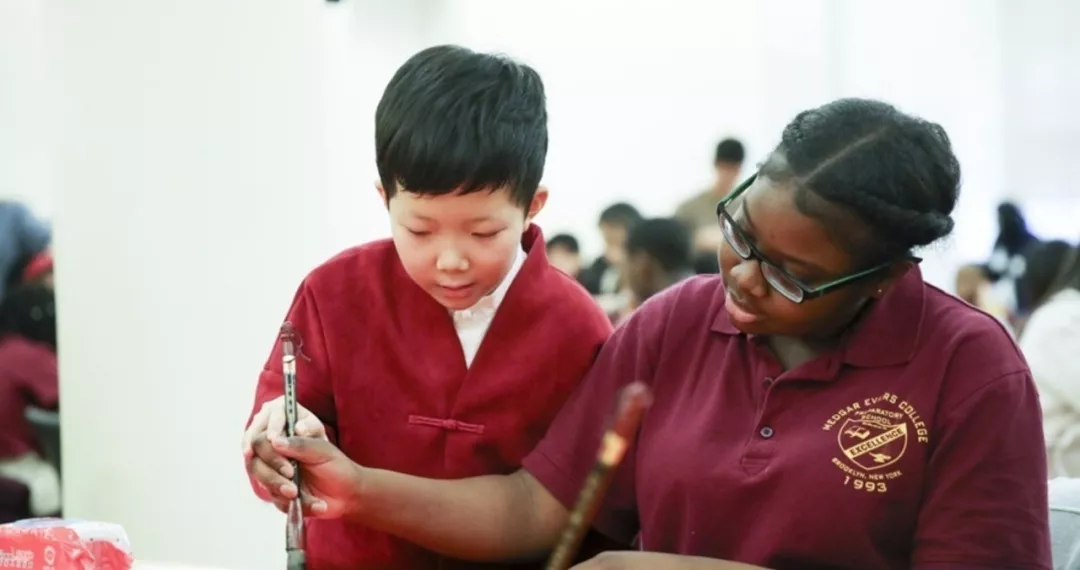
A student from Beijing teaches a student from Medgar Evers College Preparatory School of New York how to write Chinese calligraphy during a culture exchange event in New York, U.S., Feburary 2, 2018. /Xinhua Photo
A student from Beijing teaches a student from Medgar Evers College Preparatory School of New York how to write Chinese calligraphy during a culture exchange event in New York, U.S., Feburary 2, 2018. /Xinhua Photo
"People-to-people and cultural exchanges between China and the United States should not be politicized and unreasonably restricted," Lu said, as it "forms the basis for cooperation between the two countries" in pretty much every field.